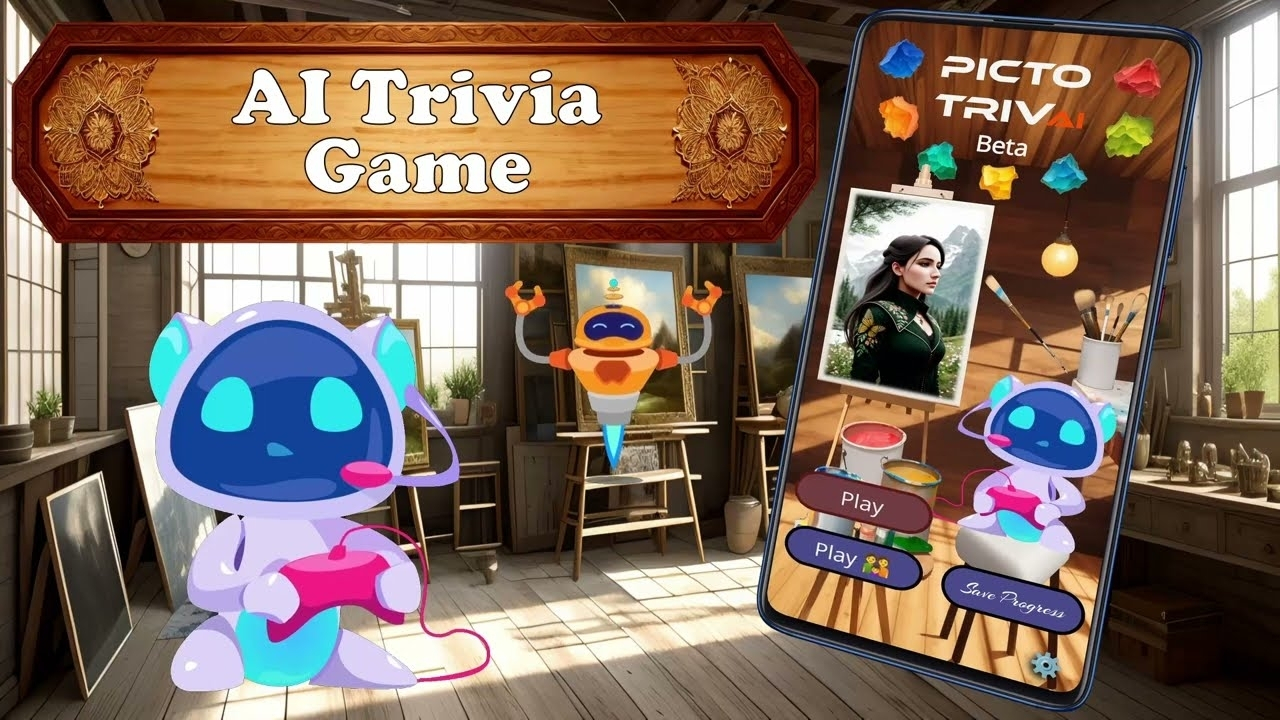Trivia games are timeless. Whether it’s at a party, on a mobile app, or during a virtual team-building session, people love testing their knowledge. Now, with the rise of artificial intelligence, you can create and scale AI generated trivia games that are unique, engaging, and endlessly customizable.
If you’re a web developer, game designer, or entrepreneur looking to build a fun and monetizable product, launching a website with AI generated trivia games is an innovative idea with long-term potential.
Why AI Generated Trivia Games Are the Future of Online Entertainment
1. Infinite, Dynamic Content
Unlike static trivia games with limited questions, AI generated trivia games create new questions on demand. You can generate:
-
Unlimited categories (history, sports, movies, tech, etc.)
-
Custom difficulty levels
-
Personalized themes for different audiences
2. Ideal for Engagement and Retention
AI-powered trivia keeps users coming back for more by:
-
Offering daily quizzes
-
Featuring leaderboard challenges
-
Allowing custom trivia for schools, offices, or events
🔗 Check out how Quizgecko uses AI to automatically generate quizzes from text, YouTube videos, and articles — showing how machine learning can revolutionize educational and fun content alike.
Key Features for Your AI Generated Trivia Games Website
1. Question Generator Engine
Use AI to create:
-
Multiple-choice questions
-
True/false statements
-
Fill-in-the-blank questions
-
Time-based challenges
Include automatic validation and scoring.
2. Topic Selection and Difficulty Settings
Let users choose from categories like:
-
General Knowledge
-
Pop Culture
-
Science & Technology
-
Geography
-
Sports
Add beginner, intermediate, and expert modes to enhance gameplay.
3. User Profiles and Leaderboards
Gamify the experience with:
-
Achievements and badges
-
Daily streaks and rewards
-
Global and friend leaderboards
4. Multiplayer and Live Mode
Create options for users to:
-
Host trivia nights with friends
-
Join random rooms
-
Compete in live quizzes with countdown timers
Example Prompt for AI Trivia Generation
Prompt: “Generate 5 multiple-choice trivia questions about world geography. Make them suitable for intermediate-level players, and include the correct answer for each.”
This kind of prompt can be used in real-time to power quiz creation through tools like GPT-4 or Claude.
How to Build the Website for AI Generated Trivia Games
Step 1: Tech Stack Suggestions
-
Frontend: Next.js, React, or Vue
-
Backend: Node.js or Django
-
AI API: OpenAI (ChatGPT), Anthropic, or Cohere
-
Database: PostgreSQL or MongoDB
-
Auth: Firebase Auth or Auth0
-
Payments: Stripe or Lemon Squeezy
Use LangChain for prompt chaining and Redis to store active quiz sessions.
Step 2: Deploy and Host
Deploy with:
-
Vercel (for frontend)
-
Render or Railway (for backend APIs)
-
Cloudflare (for performance and security)
How to Monetize Your AI Trivia Game Website
1. Freemium Model
-
Free plan: 5 quizzes/day
-
Pro plan ($9/month): Unlimited quizzes, premium categories, offline mode
-
Group plan ($29/month): Multiplayer + custom trivia sets
2. Pay-Per-Use Credits
Sell quiz packs or generation credits for power users or educators.
3. Licensing for Schools and Events
Offer white-labeled or embeddable trivia experiences for:
-
Online classrooms
-
Corporate training
-
Event gamification
Marketing Strategies to Grow Your Trivia Platform
1. SEO Blog Content
Write posts like:
-
“Top 10 Fun AI Generated Trivia Games for Remote Teams”
-
“How to Use AI to Build Custom Quizzes for Events”
-
“Best Trivia Games Online in 2025”
2. YouTube & TikTok Quiz Challenges
Record AI-generated trivia challenges with influencers or run live competitions.
3. Partner With Teachers, Streamers, and Hosts
Offer free plans or affiliate commissions for educators, podcasters, or game night organizers who promote your platform.
AI generated trivia games are a powerful blend of fun, education, and technology. By creating a website that offers real-time, personalized, and scalable trivia content, you not only entertain users — you also open up multiple streams of income.







